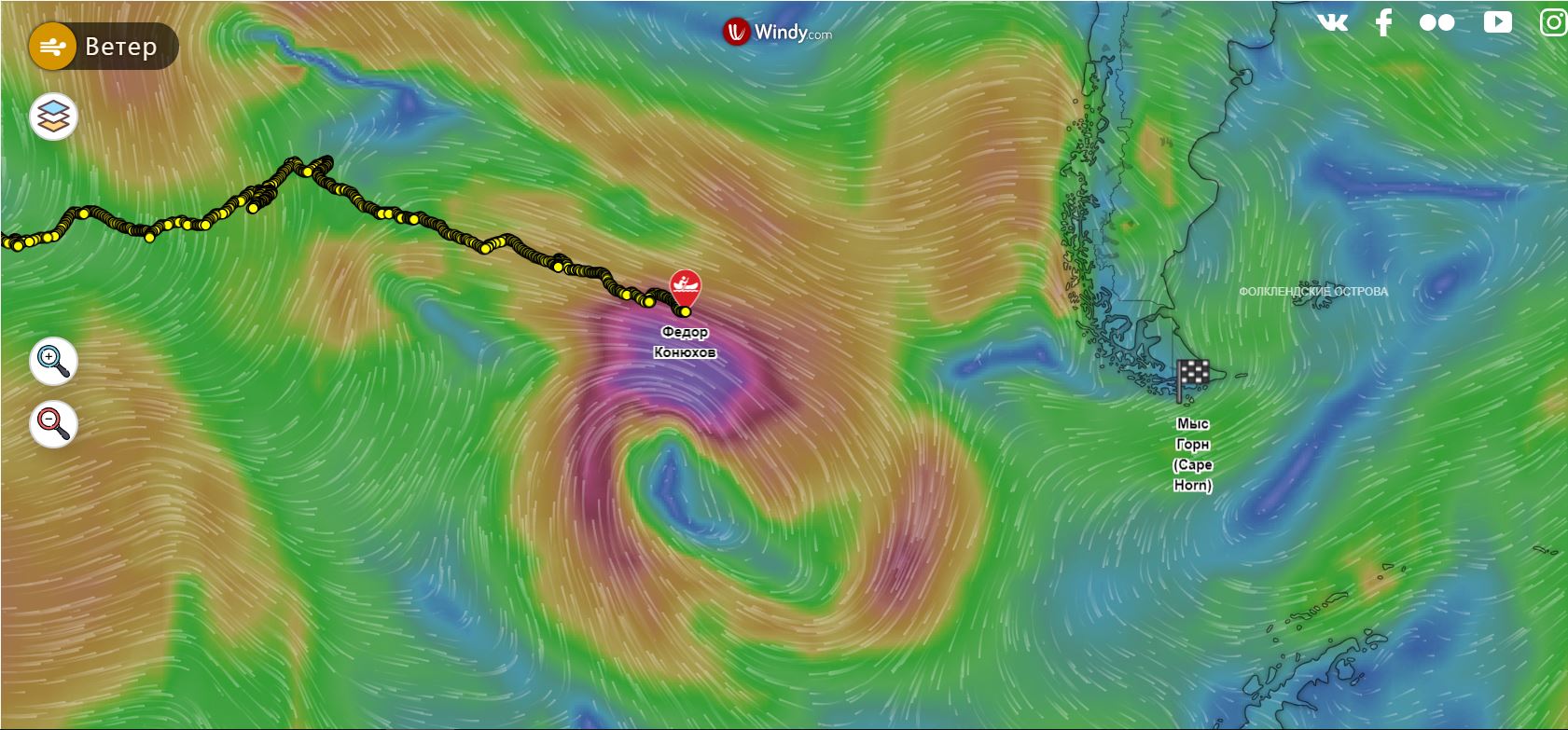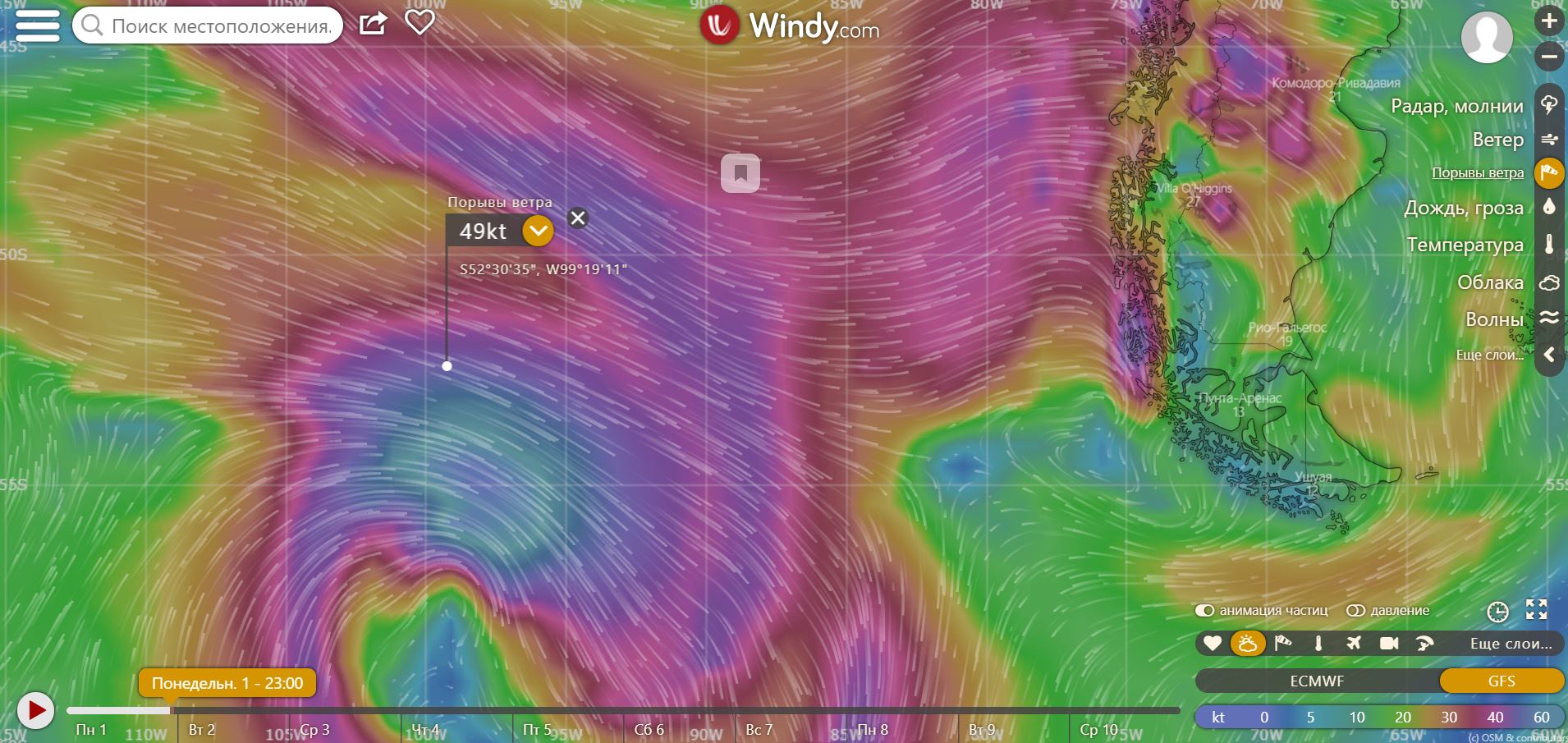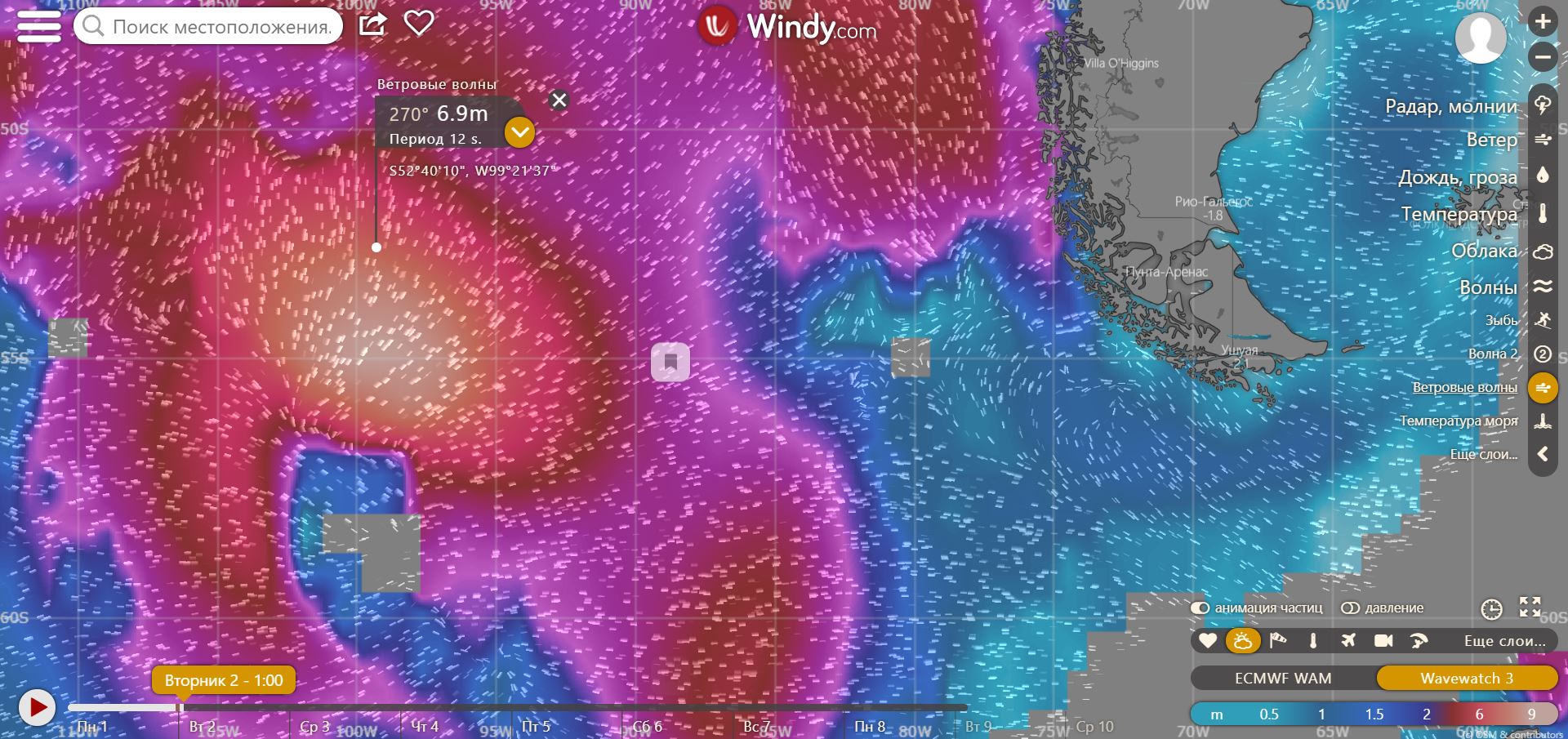Day 117
After a day of good weather, the boat was hit by another storm. The forecast didn’t worry us too much, although you wouldn’t think of 40-knot winds as being comfortable for a rowboat. By now, we are used to Fedor having to deal with stormy weather, and the fact that the storm originated locally meant it had not had time to become dangerously powerful. However, it turned out that the storm brought with it some phenomenally large waves from the depths of the Southern Ocean. Waves so powerful – they may have originated East of Cape Horn (in the Atlantic) and, having passed through the South Atlantic, Indian and Pacific oceans, gathered such colossal power on approach to the area, while the local storm added to their height with its own wind waves (crests).
During our evening phone call (22:00 Moscow time) Fedor reported that the sheer height of the waves was of threatening significance. The waves come as a wall, lifting the boat to a great height, at which point the boat flies down the wave, coming to a halt in the trough. The foamy crests are several metres high, and the boat simply drowns in them.
At 22:17 we had a message from Fedor saying that the boat capsized sideways, making a 360-degree turn and returning to an even keel. It completely torn off part of the solar panels on port side, some remaining now flapping around the cabin. It also wipe off wind index, so he has no longer data about the direction or strength of the wind. 20 minutes later the boat capsized again, immediately returning on its own to an even keel position. Third time she capsized again and did not return for a while, lying slightly keel up and flooded at starboard until it was struck by a passing wave and, speeding up, returned to an even keel. The first hit was the most powerful – making the boat crack. Fedor was in the aft cabin with all hatches battened down.
At 2 o’clock in the morning, Moscow time, the wind began to calm. It is difficult to account for all of the damage and losses incurred by the “AKROS”, but it is obvious that entire row of port side solar panels gone (Fedor can hear some of them flapping about). The newly installed wind-index was completely destroyed – and it was only installed a day ago. For now, it remains impossible to find out what is happening in the front compartment – whether there is any damage or if it is taking on water. It is impossible to open the front hatch as the waves are still 5m high and flooding the deck. Fedor has to wait until the weather improves for an inspection of the boat.
For 117 days the “AKROS” has not capsized once, and today it capsized 3 times in an hour. We await a message from Fedor Konyukhov. We do have communications with the boat as both antennas to the satellite phones remained attached. We are also receiving text messages through Bysky satellite messenger.
The satellite buoy Iridium 360 Rockstar is also still operational. We are automatically receiving coordinates every 2 hours.
The coordinates at 9:00 Moscow time on 2 April 2019 were:
57.27 South, and 98.37 West


